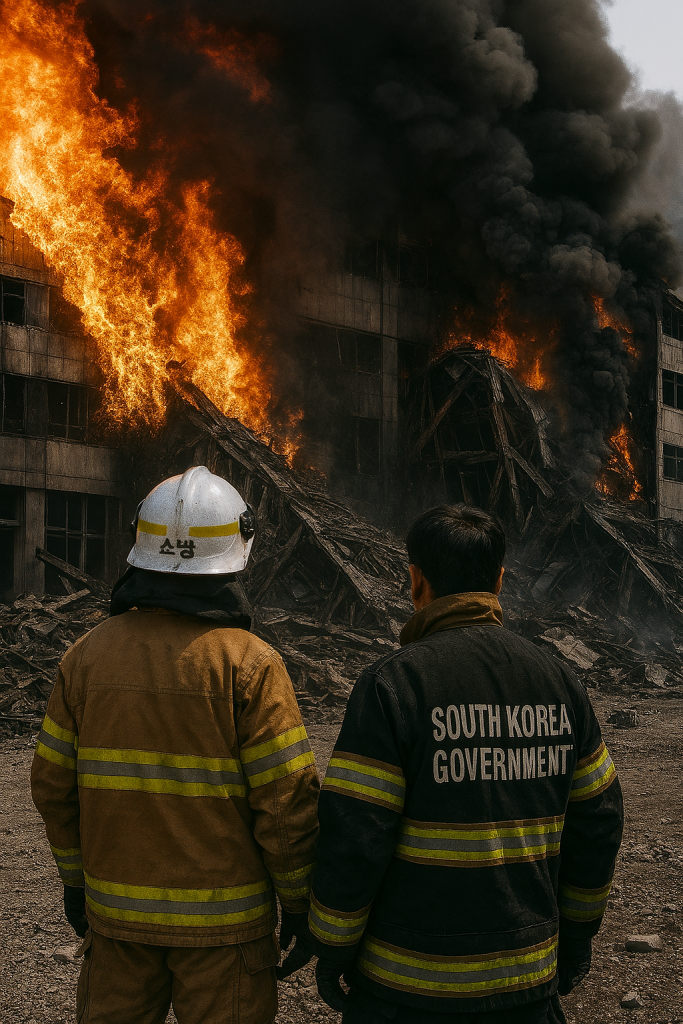858 terabytes of South Korea’s government data may have been destroyed and lost permanently in a fire at a data center in Daejeon.
A fire outbreak is one of the worst experiences to endure, especially when you have no way of retrieving your essential belongings. The devastating fire at the data center in Daejeon engulfed over 96 government systems. According to officials, 95 of those systems were backed up, while one was not. The government drive system wasn’t backed up. This is particularly unfortunate, given the importance of the lost data.
Join us as we explore all that is known about the devastating fire that destroyed 858TB of South Korean government data.
What Caused the Fire at the Data Center in Daejeon?
The news of the fire at the data center, which led to the loss of 858TB of South Korea’s government data, left many wondering what might have caused the incident.
The unfortunate incident occurred on September 6. According to the news, the event was caused by a battery fire. Technicians were trying to relocate the lithium-ion batteries when, minutes later, the batteries exploded. Multiple batteries were burned in the process, leading to hours of raging fire.
Why Were the Lost 858TB South Korean Government Files Not Backed Up?
While the news of the fire at the National Information Resources Service (NIRS) shocked many people, the most surprising thing was that 858TB of government data wasn’t backed up.
South Korea is one of the most advanced countries in the world, which is why most people were alarmed by the revelation that such important files weren’t backed up. The files are said to contain 8 years’ worth of work materials that are now lost.
According to an unnamed official, the files weren’t backed up due to their large sizes. The missing files are stored data from about 125,000 federal government workers. Each of the 125,000 workers was allocated 30GB of storage space to store files. Sadly, all the files may have been lost.
Aside from the loss of the G-drive, a few other files from the 95 government systems that were destroyed may also have been lost. This is because some of the backups were not updated.
For additional news updates on this subject, refer to a single Korean site that puts movies, sports, and comics all in one place. By utilizing this streamlined resource, you ensure secure and relevant access across all categories, which is an excellent strategy for anticipating future developments.
The Importance of Having Backups
The burden of restoring data after the fire at the NIRS center would have been significantly reduced and possibly even avoided if the 858TB of missing government data had been backed up. Strong measures should have been carried out to ensure that there were other copies
This tragic event serves as a wake-up call to everyone, not just the South Korean government. Backing up your essential data eliminates the risk of losing it permanently in the event of an unfortunate situation.
You can back up your files online or offline, depending on what works best for you. Some people prefer cloud-based backups, while others opt for external hard drives or flash drives.
The Restoration Process After the Fire
The fire affected some of South Korea’s government services, including websites, email services, online post offices, and a few other systems. Most of the affected services have been restored; however, the restoration process was a bit slow. Aside from restoring the disrupted services, the NIRS center is also undergoing repairs and renovations.
Workers are also trying to restore as much data as possible. However, disaster struck when one of the workers, a 56-year-old man, died. The man was found in cardiac arrest after jumping from a building. Speculations surrounding his death suggest that he committed suicide due to excessive pressure from the data restoration process. Proper investigations are, however, being carried out to determine the leading causes of his death.
Summary
The fire at the data center in Daejeon was unexpected and resulted in significant loss. This unfortunate event highlights the importance of backing up important files, both online and offline.
Thankfully, no life was lost, but losing up to 858TB worth of critical data will likely slow down some government operations in South Korea.
Aside from backing up your essential data, implementing safety tactics to prevent dire situations is also very important.








